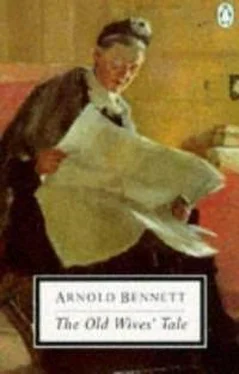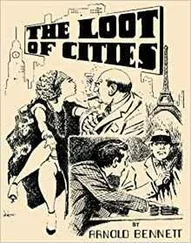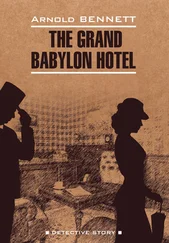"I hope she'll turn over a new leaf now," observed Mrs. Baines to Constance as she closed the door. Constance knew that her mother was referring to the confectioner's wife; she gathered that the hope was slight in the extreme.
"What did you want to speak to me about, mother?" she asked, as a way out of her delicious confusion.
"Shut that door," Mrs. Baines replied, pointing to the door which led to the passage; and while Constance obeyed, Mrs. Baines herself shut the staircase-door. She then said, in a low, guarded voice--
"What's all this about Sophia wanting to be a school-teacher?"
"Wanting to be a school-teacher?" Constance repeated, in tones of amazement.
"Yes. Hasn't she said anything to you?"
"Not a word!"
"Well, I never! She wants to keep on with Miss Chetwynd and be a teacher." Mrs. Baines had half a mind to add that Sophia had mentioned London. But she restrained herself. There are some things which one cannot bring one's self to say. She added, "Instead of going into the shop!"
"I never heard of such a thing!" Constance murmured brokenly, in the excess of her astonishment. She was rolling up Mr. Povey's tape-measure.
"Neither did I!" said Mrs. Baines.
"And shall you let her, mother?"
"Neither your father nor I would ever dream of it!" Mrs. Baines replied, with calm and yet terrible decision. "I only mentioned it to you because I thought Sophia would have told you something."
"No, mother!"
As Constance put Mr. Povey's tape-measure neatly away in its drawer under the cutting-out counter, she thought how serious life was--what with babies and Sophias. She was very proud of her mother's confidence in her; this simple pride filled her ardent breast with a most agreeable commotion. And she wanted to help everybody, to show in some way how much she sympathized with and loved everybody. Even the madness of Sophia did not weaken her longing to comfort Sophia.
III
That afternoon there was a search for Sophia, whom no one had seen since dinner. She was discovered by her mother, sitting alone and unoccupied in the drawing-room. The circumstance was in itself sufficiently peculiar, for on weekdays the drawing-room was never used, even by the girls during their holidays, except for the purpose of playing the piano. However, Mrs. Baines offered no comment on Sophia's geographical situation, nor on her idleness.
"My dear," she said, standing at the door, with a self-conscious effort to behave as though nothing had happened, "will you come and sit with your father a bit?"
"Yes, mother," answered Sophia, with a sort of cold alacrity.
"Sophia is coming, father," said Mrs. Baines at the open door of the bedroom, which was at right-angles with, and close to, the drawing-room door. Then she surged swishing along the corridor and went into the showroom, whither she had been called.
Sophia passed to the bedroom, the eternal prison of John Baines. Although, on account of his nervous restlessness, Mr. Baines was never left alone, it was not a part of the usual duty of the girls to sit with him. The person who undertook the main portion of the vigils was a certain Aunt Maria--whom the girls knew to be not a real aunt, not a powerful, effective aunt like Aunt Harriet of Axe--but a poor second cousin of John Baines; one of those necessitous, pitiful relatives who so often make life difficult for a great family in a small town. The existence of Aunt Maria, after being rather a "trial" to the Baineses, had for twelve years past developed into something absolutely "providential" for them. (It is to be remembered that in those days Providence was still busying himself with everybody's affairs, and foreseeing the future in the most extraordinary manner. Thus, having foreseen that John Baines would have a "stroke" and need a faithful, tireless nurse, he had begun fifty years in advance by creating Aunt Maria, and had kept her carefully in misfortune's way, so that at the proper moment she would be ready to cope with the stroke. Such at least is the only theory which will explain the use by the Baineses, and indeed by all thinking Bursley, of the word "providential" in connection with Aunt Maria.) She was a shrivelled little woman, capable of sitting twelve hours a day in a bedroom and thriving on the regime. At nights she went home to her little cottage in Brougham Street; she had her Thursday afternoons and generally her Sundays, and during the school vacations she was supposed to come only when she felt inclined, or when the cleaning of her cottage permitted her to come. Hence, in holiday seasons, Mr. Baines weighed more heavily on his household than at other times, and his nurses relieved each other according to the contingencies of the moment rather than by a set programme of hours.
The tragedy in ten thousand acts of which that bedroom was the scene, almost entirely escaped Sophia's perception, as it did Constance's. Sophia went into the bedroom as though it were a mere bedroom, with its majestic mahogany furniture, its crimson rep curtains (edged with gold), and its white, heavily tasselled counterpane. She was aged four when John Baines had suddenly been seized with giddiness on the steps of his shop, and had fallen, and, without losing consciousness, had been transformed from John Baines into a curious and pathetic survival of John Baines. She had no notion of the thrill which ran through the town on that night when it was known that John Baines had had a stroke, and that his left arm and left leg and his right eyelid were paralyzed, and that the active member of the Local Board, the orator, the religious worker, the very life of the town's life, was permanently done for. She had never heard of the crisis through which her mother, assisted by Aunt Harriet, had passed, and out of which she had triumphantly emerged. She was not yet old enough even to suspect it. She possessed only the vaguest memory of her father before he had finished with the world. She knew him simply as an organism on a bed, whose left side was wasted, whose eyes were often inflamed, whose mouth was crooked, who had no creases from the nose to the corners of the mouth like other people, who experienced difficulty in eating because the food would somehow get between his gums and his cheek, who slept a great deal but was excessively fidgety while awake, who seemed to hear what was said to him a long time after it was uttered, as if the sense had to travel miles by labyrinthine passages to his brain, and who talked very, very slowly in a weak, trembling voice.
And she had an image of that remote brain as something with a red spot on it, for once Constance had said: "Mother, why did father have a stroke?" and Mrs. Baines had replied: "It was a haemorrhage of the brain, my dear, here"--putting a thimbled finger on a particular part of Sophia's head.
Not merely had Constance and Sophia never really felt their father's tragedy; Mrs. Baines herself had largely lost the sense of it--such is the effect of use. Even the ruined organism only remembered fitfully and partially that it had once been John Baines. And if Mrs. Baines had not, by the habit of years, gradually built up a gigantic fiction that the organism remained ever the supreme consultative head of the family; if Mr. Critchlow had not obstinately continued to treat it as a crony, the mass of living and dead nerves on the rich Victorian bedstead would have been of no more account than some Aunt Maria in similar case. These two persons, his wife and his friend, just managed to keep him morally alive by indefatigably feeding his importance and his dignity. The feat was a miracle of stubborn self-deceiving, splendidly blind devotion, and incorrigible pride.
When Sophia entered the room, the paralytic followed her with his nervous gaze until she had sat down on the end of the sofa at the foot of the bed. He seemed to study her for a long time, and then he murmured in his slow, enfeebled, irregular voice:
Читать дальше











